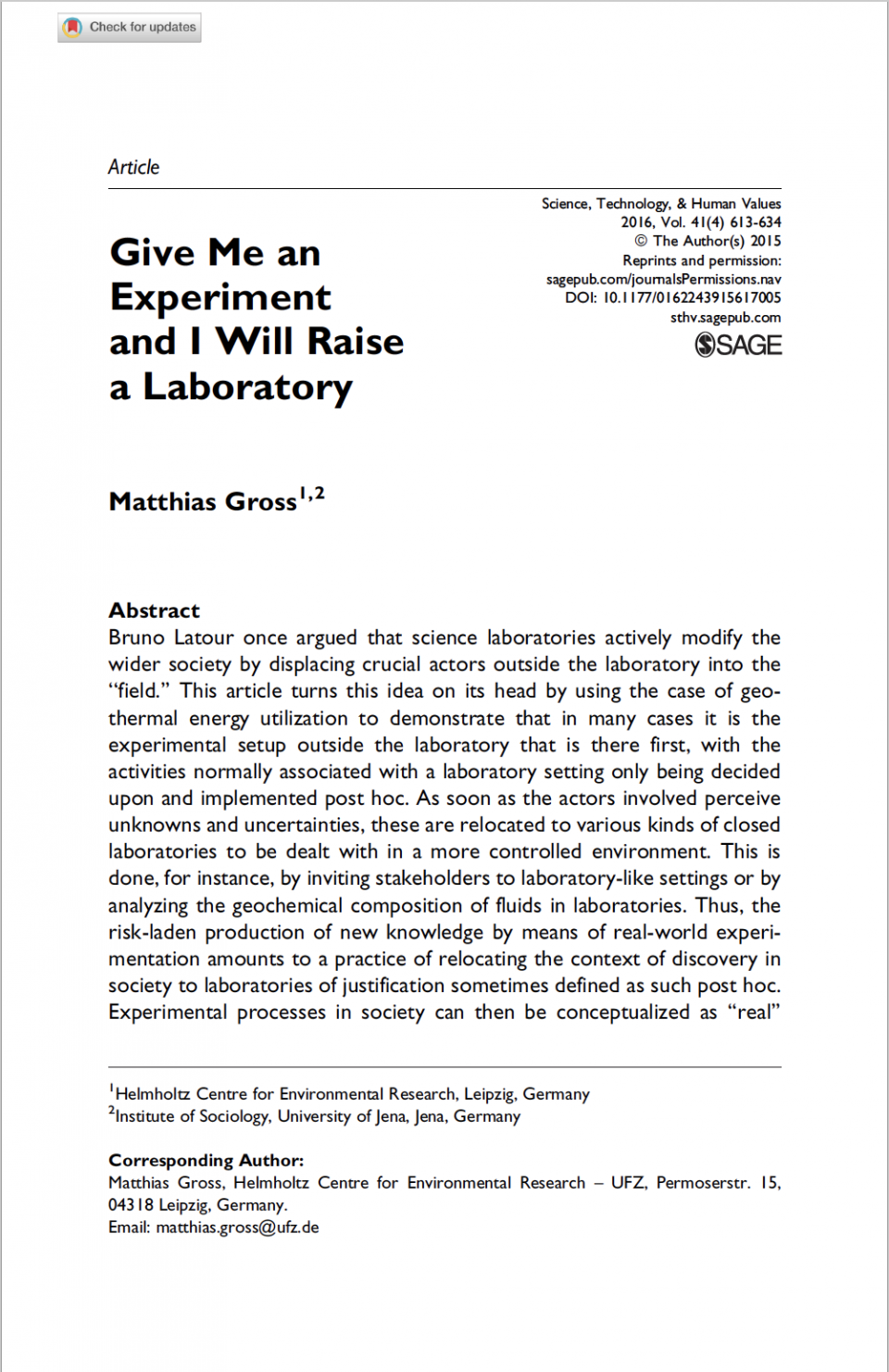ARTICLE ABSTRACT: Bruno Latour once argued that science laboratories actively modify the wider society by displacing crucial actors outside the laboratory into the "field." This article turns this idea on its head by using the case of geothermal energy utilization to demonstrate that in many cases it is the experimental setup outside the laboratory that is there first, with the activities normally associated with a laboratory setting only being decided upon and implemented post hoc. As soon as the actors involved perceive unknowns and uncertainties, these are relocated to various kinds of closed laboratories to be dealt with in a more controlled environment. This is done, for instance, by inviting stakeholders to laboratory-like settings or by analyzing the geochemical composition of fluids in laboratories. Thus, the risk-laden production of new knowledge by means of real-world experimentation amounts to a practice of relocating the context of discovery in society to laboratories of justification sometimes defined as such post hoc. Experimental processes in society can then be conceptualized as "real" experiments and laboratory activities as merely temporarily subordinated components of the larger experiment.

Matthias Gross, "2016. Gross. "Give Me an Experiment and I Will Raise a Laboratory"", contributed by James Adams, STS Infrastructures, Platform for Experimental Collaborative Ethnography, last modified 7 June 2018, accessed 5 April 2025. https://stsinfrastructures.org/content/2016-gross-give-me-experiment-and-i-will-raise-laboratory
Critical Commentary
In this 2016 article, Matthias Gross upsets the traditional assumptions of labratory studies by turning them on their head. Using the case of geothermal energy, Gross argues that the conditions of "the lab" are often decided after experimentation that takes place "in the field." In this sense, he argues that labratory activities should be considered temporally subordinate to their encompassing experimental processes.